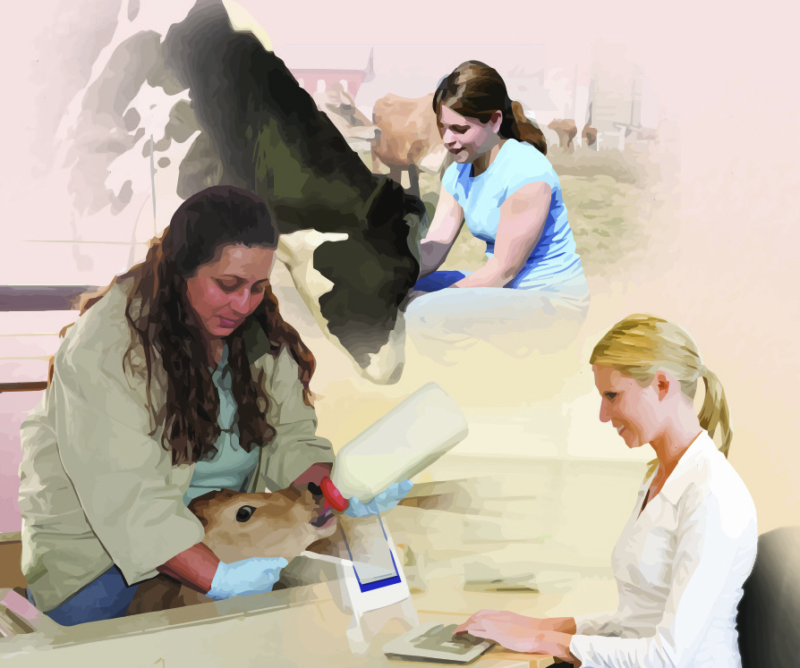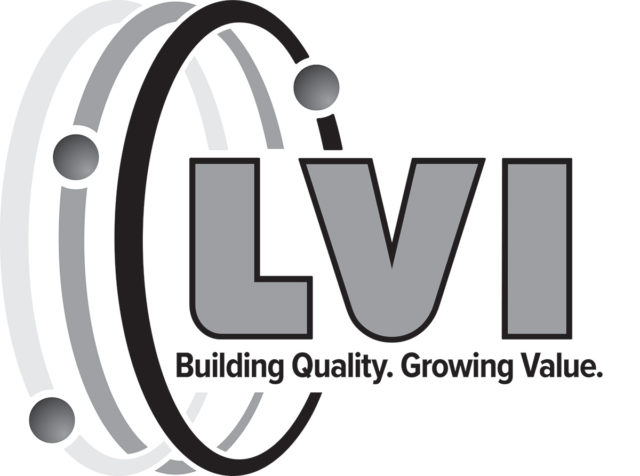As a dairy producer, I thought it would be interesting to see how different consumers view the dairy industry. For this session, I have interviewed one person with no dairy experience, two with family backgrounds in dairy but no regular experience, and one with heavy farming involvement but not a dairy farmer specifically.
Short bios
Emily Neuherz – Senior associate at Capital Foundry in Pittsburgh, Pennsylvania. Currently lives in the suburbs of Pittsburgh.
Carole Parsons – Emergency room physician in Akron, Ohio.
Kelly Bartsch – Specialty practice pharmacist. Has three kids and grew up going to grandparents' dairy farm.
Mandy Orahood – Organization director for Ohio Farm Bureau serving Ashtabula, Geauga, Lake and Trumbull county farm bureaus. Was also a meat inspector for the Ohio Department of Agriculture for five years. Raised on a small cow-calf farm in Noble County and currently lives in Ashtabula County with husband Lee and two kids, Colter (10) and Kenzlee (6), where they feed out beef to sell to local consumers.
How would you describe your knowledge about the dairy industry?
NEUHERZ: My knowledge of the dairy industry is minimal.
PARSONS: I understand raising dairy cows and the milking process a little better than most non-farmers, but my knowledge on what happens after the milk leaves the farm is quite limited. I also don’t stay current with issues in the industry.
BARTSCH: Average, at best.
ORAHOOD: I am pretty knowledgeable. I worked on a dairy farm for two years in college and had a deep appreciation instilled in me very quickly on how hard dairy farmers work. I decided then I wasn’t marrying a dairy farmer. [Laughs.] I studied animal sciences, inspected meat – and now as an organization director, it’s very important for me to understand the issues impacting our dairy industry and to help find solutions to the challenges they face.
What are your thoughts on conventional versus organic milk?
NEUHERZ: I personally purchase conventional milk because of price. I question if the organic milk is really organic, or if it is a marketing gimmick to get consumers to pay more.
PARSONS: I feel that if organic is better than conventional, then there would be a huge movement, especially from the medical field, to make organic milk the primary product. For the most part, it seems as though there "may" be a benefit but it really hasn't been found to be a substantial one yet. I also think the term "organic" is loosely applied to products and gives people the belief that they are consuming something "purer" when this may not be the case. To me, milk is milk. I grew up on conventional milk, so that is what I drink as an adult.
BARTSCH: It's not worth the cost difference. My understanding is that there are super-strict rules on all dairy, so the typical arguments for buying organic aren't as relevant as, say, with produce. Unfortunately, I don't think most consumers realize that, and so there's a negative connotation that conventional milk is somehow inferior, which it's not! I think if you have personal ethical concerns about animal treatment, etc., your best bet is to buy direct from a farm rather than trust the organic label.
ORAHOOD: I think that it’s amazing that we live in a country where we are fortunate to have the choice of what we want to nourish our bodies with. I think it is very important to note that both conventional and organic are just terms that describe production methods. Both conventional and organic milk undergo rigorous safety and quality control measures. Therefore, in terms of safety and wholesomeness, there is no difference between conventionally produced and organic milk. Regardless of production method, both are safe for consumption, both meet nutritional requirements, and both methods care about animal welfare. Organic is a great option to have, but to meet the food needs of a growing global population – set to increase by 2.2 billion by 2050 – conventional methods are essential to ensure the United States has the most abundant and wholesome food supply, and that we can continue to feed the world.
Do you have any questions/concerns with dairy farming practices?
NEUHERZ: My concerns are primarily with the farmers, the longevity of their careers and the general direction of the industry. There is already a shortage of farmers, and with fewer and fewer young people entering the industry, I’m concerned about the long-term consequences. What happens when there are no more farmers left? What happens when all the farming land is converted into housing developments?
I’m also concerned with the growing trend of non-dairy products such as almond milk and coconut yogurt, and the effect this will have on our health long-term. Humans have been drinking milk forever. There is one ingredient in milk; it’s just milk. There are multiple ingredients in almond milk: ascorbic acid, plenty of added sugars, carrageenan and who knows what other chemicals. Is non-dairy all that much healthier for us than regular milk?
PARSONS: A lot of farmers use artificial insemination for breeding. How good is the testing for genetic conditions? I imagine there could be issues in the long-term future if there isn't careful screening.
BARTSCH: Not a specific question, but I would love to see dairy farming (and especially smaller farms) be more visible to the general public. I think there is so much misinformation about farming practices that's largely driven by what people see about the huge farms (documentaries by animal rights groups, etc.).
ORAHOOD: You know, I'm really not concerned about dairy farming practices themselves. I’ve been pretty blessed to have the opportunities to see different dairy farms, both large and small. My biggest concern for the future of dairy (and all) farms are increased regulations and consumer demands.
Ninety-five percent of all U.S. dairy farms are family-owned, and they range from very small to very large dairies. Dairy farms, no matter their size, have been adopting technology and exploring methods to improve water quality, conserve water and be more environmentally conscious.
Improved genetics, improvements in facilities and cow comfort, and improved feed quality and advancements in nutrition, the environmental impact of milk production has significantly decreased. According to American Dairy Association MidEast, by 2017 the industry had achieved a remarkable 30% reduction in water usage and a 21% decrease in energy consumption per gallon of milk produced.
Our farmers invest tremendous effort in nurturing both their animals and the land they work on, often making sacrifices to sustain their operations. Their dedication goes beyond mere business; it's rooted in a profound passion and connection to their animals and the environment. Recognizing the importance of being open-minded and engaged, I've learned that just because I don’t understand something, it doesn’t make it wrong. Most misconceptions in agriculture have valid and scientific reasons behind them. By asking questions, actively participating and embracing different perspectives, you too can gain a better understanding of farming practices and where your food comes from.
Overall, this was a really fun session to do, and I found all of the answers very interesting and unique. In conclusion, I do feel that it is safe to say that consumers trust us as producers to supply a healthy, wholesome product. With that, all four consumers regularly consume a large variety of dairy products.











